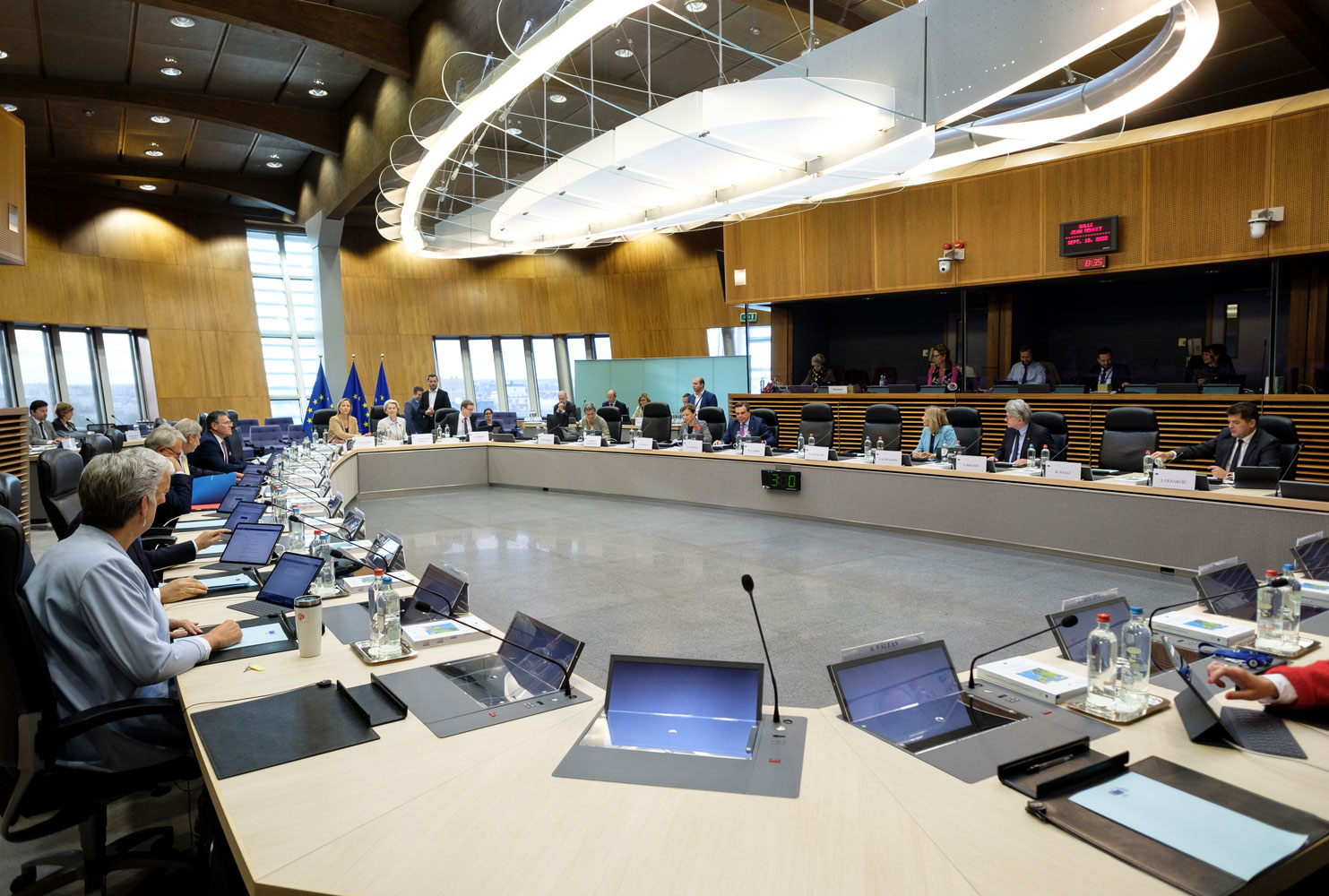Table of Contents
- Cutting civil society’s lifeline
- SUMMARY +
- INTRODUCTION +
- HISTORICAL ORIGINS The USA’s 1938 Act +
- 2004-2009 Early steps in Ethiopia and Zimbabwe +
- 2012 Russia sets the template +
- 2014-2018 Russia’s copycats +
- 2020-2022 Asia and the Americas +
- 2022-2024 Central Asia and the Caucasus +
- 2024-2025 Foreign agents laws go global +
- Trends and prospects +
- Recommendations +
- Download Report +
2014-2018 Russia’s copycats
Once Russia introduced its foreign agents law, others quickly followed suit. Ukraine was among the first, amid a political crisis that began in late 2013, when then President Viktor Yanukovych abandoned a planned EU association agreement in favour of closer ties with Russia. As protests erupted across the country, with hundreds of thousands of Ukrainians mobilising for European integration and against government corruption, Ukraine’s parliament responded in January 2014 by passing a sweeping package of repressive laws commonly known as the dictatorship laws. These included provisions targeting public associations that received funding from foreign states and engaged in political activities.
Widespread public outrage meant these repressive measures didn’t last long. Mass protests brought up to 200,000 people to the streets on 19 January alone, with protesters facing violent crackdowns in which security forces shot several people dead. The laws were repealed a few days later, on 28 January. This marked the first instance of a foreign agents law being reversed through immediate and widespread resistance, offering hope for civil society that street pressure could help increase the political costs for governments planning to introduce such laws.
However, the violence escalated dramatically in mid-February, culminating with police snipers killing over 100 civilian protesters between 18 and 20 February. The brutal crackdown ultimately led to Yanukovych fleeing the country and a change in government. The crisis also marked the beginning of Russia’s invasion of Ukraine, with its illegal annexation of Crimea in March 2014.

Photo by Jack Guez/AFP
ISRAEL'S TARGETING OF PALESTINIAN HUMAN RIGHTS ORGANISATIONS
In 2016, after six hours of heated debate, Israel’s parliament passed the NGO Transparency Law by 57 to 48 votes. Officially called the Transparency Requirements for Parties Supported by Foreign State Entities Bill, the law mandates that Israeli CSOs receiving over half of their funding from foreign governments must prominently disclose this support in all publications, official communications and public materials. The law also requires these organisations to be listed on the Non-Profit Registrar’s website, along with their funding sources. Violations carry fines of up to NIS 29,200 (approx. US$7,500).
The law’s discriminatory nature was evident from its inception. Of 27 organisations immediately affected, 25 were human rights groups critical of Israeli policies toward Palestinians. The legislation targeted only foreign government funding while exempting private donations, effectively leaving right-wing organisations largely unaffected since most receive backing from private donors, particularly wealthy people in the USA. If there’s a transparency problem, it’s clear where it lies: according to a December 2015 Peace Now report, while funding received by most progressive CSOs was already transparent before the bill’s passage, 94 per cent of financial support to nine prominent right-wing organisations was hidden from public scrutiny.
International condemnation swiftly followed. Despite the contentious political battle surrounding its passage, the government stalled on enforcing the law: a 2019 report by a parliamentary body found that the Justice Ministry’s Associations Registrar had done nothing to implement it beyond routine CSO supervision.
After almost a decade in force, the NGO Transparency Law remains largely symbolic. While it succeeded in stigmatising human rights organisations and creating a chilling effect on civil society, its practical impact has been minimal due to limited enforcement and organisations adapting their funding strategies. Its most prominent targets, Breaking the Silence and B’Tselem, managed to maintain funding just below the threshold, and in an act of defiance, added identical statements to their publications:
‘In compliance with the Israeli government’s anti-NGO law that seeks to equate the receipt of foreign funding with disloyalty, please note that we may, or may not, be primarily funded by foreign state entities. Either way, we remain loyal – to human rights values, freedom, democracy, and an end to the occupation’.
However, the Israeli government’s efforts to restrict civil society intensified in 2025. In May, a far more severe bill that would impose an 80 per cent tax on foreign donations to CSOs passed its second reading. Unlike the 2016 law, this would have devastating practical consequences, likely forcing the closure of many CSOs and endangering even well-established groups such as Breaking the Silence and B’Tselem. Leading Jewish philanthropists have condemned the proposed law as a severe threat to Israeli civil society and human rights advocacy.
Hungary, under the government of right-wing nationalist Prime Minister Viktor Orbán, became the first EU state to adopt a Russian-style foreign agents law. Its 2017 Law on the Transparency of Organisations Receiving Support from Abroad required CSOs that receive over US$25,000 of foreign annual support to register and label themselves as foreign-funded in all published materials.
The law’s discriminatory targeting was built into its phrasing: it applied to organisations receiving foreign funding but explicitly exempted national minority organisations, religious groups and sports organisations, which are less likely to express dissent towards the government. The law was part of a campaign targeting progressive organisations such as anti-corruption watchdogs, human rights groups and refugee assistance organisations funded by George Soros’ Open Society Foundations.
The European Court of Justice struck down Hungary’s foreign agents law in June 2020, recognising its discriminatory nature and chilling effect on civil society and finding it in violation of EU law and the Charter of Fundamental Rights. However, rather than ending its assault on civil society, in December 2023 Orbán’s government introduced a Law on the Protection of National Sovereignty. This new law established the Sovereignty Protection Office, a government-controlled body with broad powers to investigate organisations allegedly representing foreign interests. In October 2024, the European Commission referred Hungary to the Court of Justice over this new law.
Showing its contempt for EU institutions, in May 2025 the ruling party introduced a new foreign agents bill, Transparency in Public Life. If passed, it would give the Sovereignty Protection Office the power to blacklist organisations from receiving foreign funding and domestic funds, and impose other restrictions, if they’re deemed a threat to sovereignty, which is broadly defined as anything that offends, portrays unfavourably or supports activities against the values set out in Hungary’s Fundamental Law, including critiques of the government and support of LGBTQI+ rights. Organisations found in violation would face high fines and potential dissolution. The proposed law has provoked domestic and international backlash, and in June, the vote was postponed until the next parliamentary session.

Photo by Thierry Monasse/Getty Images
Strip away the rhetoric, and the agenda is clear: crush all dissent. The government openly targets independent civil society groups and media outlets, recasting human rights defenders, investigative journalists and watchdog organisations as enemies of the state. This isn’t about sidelining critics; it’s about destroying them entirely.
MÁRTA PARDAVI | Hungary


Photo by Janos Kummer/Getty Images
Australia also passed two pieces of foreign interference legislation in June 2018: the National Security Legislation Amendment (Espionage and Foreign Interference) Act and the Foreign Influence Transparency Scheme Act. The laws were drafted amid concerns about extensive Chinese influence operations revealed by intelligence reports, including millions in Chinese political donations and Communist Party monitoring of Chinese nationals in Australia.
Their original versions faced heavy criticism for containing overly broad definitions that threatened to impose registration duties on academics, charities, journalists and protesters, prompting an unusually large number of amendments before parliament passed them with bipartisan support.
The final versions of the laws made covert foreign interference a criminal offence punishable with up to 20 years in prison and introduced a registration scheme that requires anyone undertaking political lobbying or communications activities on behalf of foreign principals to register within 14 days or face two to five years in prison. While modelled on FARA, the Australian scheme is narrower in one way – it only covers foreign governments and political organisations rather than any foreign person – but broader in another, as it lacks FARA’s exemption for registered political lobbyists and entails greater enforcement powers.
Unlike foreign agents laws that primarily target civil society, Australia’s legislation focuses on genuine foreign government influence and includes stronger procedural safeguards. However, its broad definitions of national security and political influence have raised concerns about their potential chilling effects on legitimate political expression.